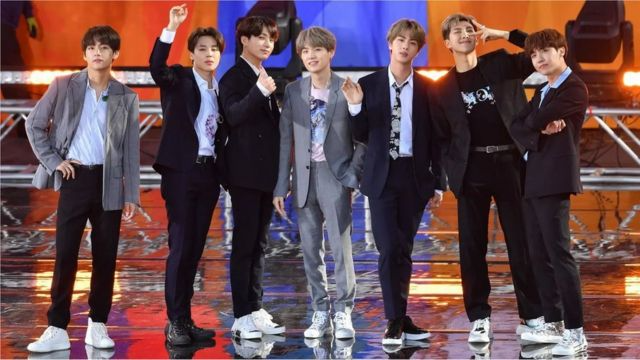September 14, 2023, about twenty-three students graduated from a pilot K-Pop Vocal Training class organized by the Korea Culture Center Nigeria (KCCN), Abuja.
The event is significant for the fact that for K-Pop fans in Africa, the focus has always been on the dance aspect of K-Pop. Hence, the annual Global K-Pop Dance Competition held in Korea, where selected groups across the world compete for the prize and position of the Best K-Pop Dance group. Nigeria is unexempted, having won the Global K-Pop Dance Competition at least once.
However, as K-Pop continues to make global waves and K-Pop groups such as BTS, Big Bang, EXO are dominating music chats, individually and as a group, and with the emergence of non-Korean K-Pop Idol groups such as Black Swan, Way V, XG, and EXP Edition, KCCN Abuja is shifting attention to another aspect of K-Pop music, singing.
“You cannot talk about K-Pop without the vocals (singing). The role of K-Pop vocals is huge as well,” said Vocal Coach and K-Pop Idol Trainee at Rendezvous Of Dream Voicers (RODV), William King.
A graduate of Contemporary Music at JMC Academy, Australia, Kim’s company has worked with artistes from top K-Pop agencies including SM, HYBE, FNC, QEntertainment among others, and offered the students similar quality voice trainings undergone by prospective K-Pop idols in Korea.
“I tried to bring in what I do in Korea with my artistes and trainees to the vocal class. I wanted the students in Nigeria to experience the Korean K-Pop Idol Training System.
“We did a lot stylistic vocal technique for them to sound trendy as in K-Pop. K-Pop is at the forefront of trendy music style. We also worked on the foundation of singing, which is vocalization. In order words, how to produce sounds in a healthy manner, so as to produce nice healthy sound/voice,” said Kim.
While K-Pop vocals differs from Afromusic, with the former focusing on ‘pronunciation, keys, notes and ‘glottal attack’, and the latter leaning more on the natural (raw) voice, Kim believes there is a convergence between K-Pop and Afro Pop.
“K-Pop is influenced a lot by African music – the rhythm of it, the feel and groove of it. One can dance to it. We cannot talk about dance and the joy of music without K-Pop. Same with African music, which is heavily influenced by the dance element,” said Kim.
But in no other way has the meeting point between both forms of music seen most advantageously than in the song Tinnitus by K-Pop Boy Idol group, TXT.
“TXT’s Tinnitus is the first time K-Pop and Afro Pop converged smoothly for me. The combination of of both forms of music in that song was strong. The song made me move my body,” said vocal trainee graduate and Grade School Teacher, Chidimma Ibezim.
Tinnitus deploys all the aspects of Afro Pop/Beat: It’s rhythm and beat are heavy on the percussion; two short verses are followed by a catchy, simple and repetitive chorus – want it, want it, want it, yeah/ I’m rolling, rolling, rolling, yeah. Similarly, the familiar high note of K-Pop was replaced by a more relaxed and alto vocals. Tinnitus, is a fine piece of art indicating the vast possibilities of collaboration between the K-Pop and Afro music, beyond the students’ interest on how to debut as a non-Korean Idol group.
More importantly, the vocal session is perhaps a platform to add value to the Ambassador’s K-Pop Singing Prize, of the annual Global K-Pop Dance Competition, in Nigeria.
“I want to expand the experience and reach of K-Pop in Nigeria, beyond the one K-Pop Dance K-Pop Academy held at the center three or four years ago. I want to host several K-Pop classes. A month ago, we had a K-Pop dance class for children, and a year before that, we had a K-Pop dance class for persons with disabilities.
“Perhaps in the future, invite some K-Pop vocal girl group to perform in Nigeria,” said KCCN Director, Kim Chang Ki.




